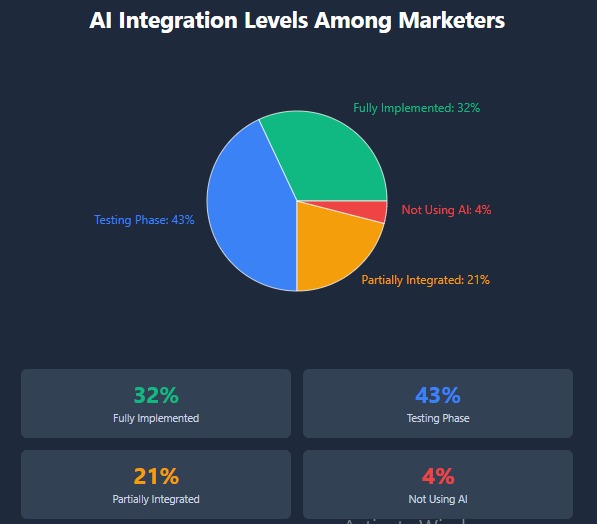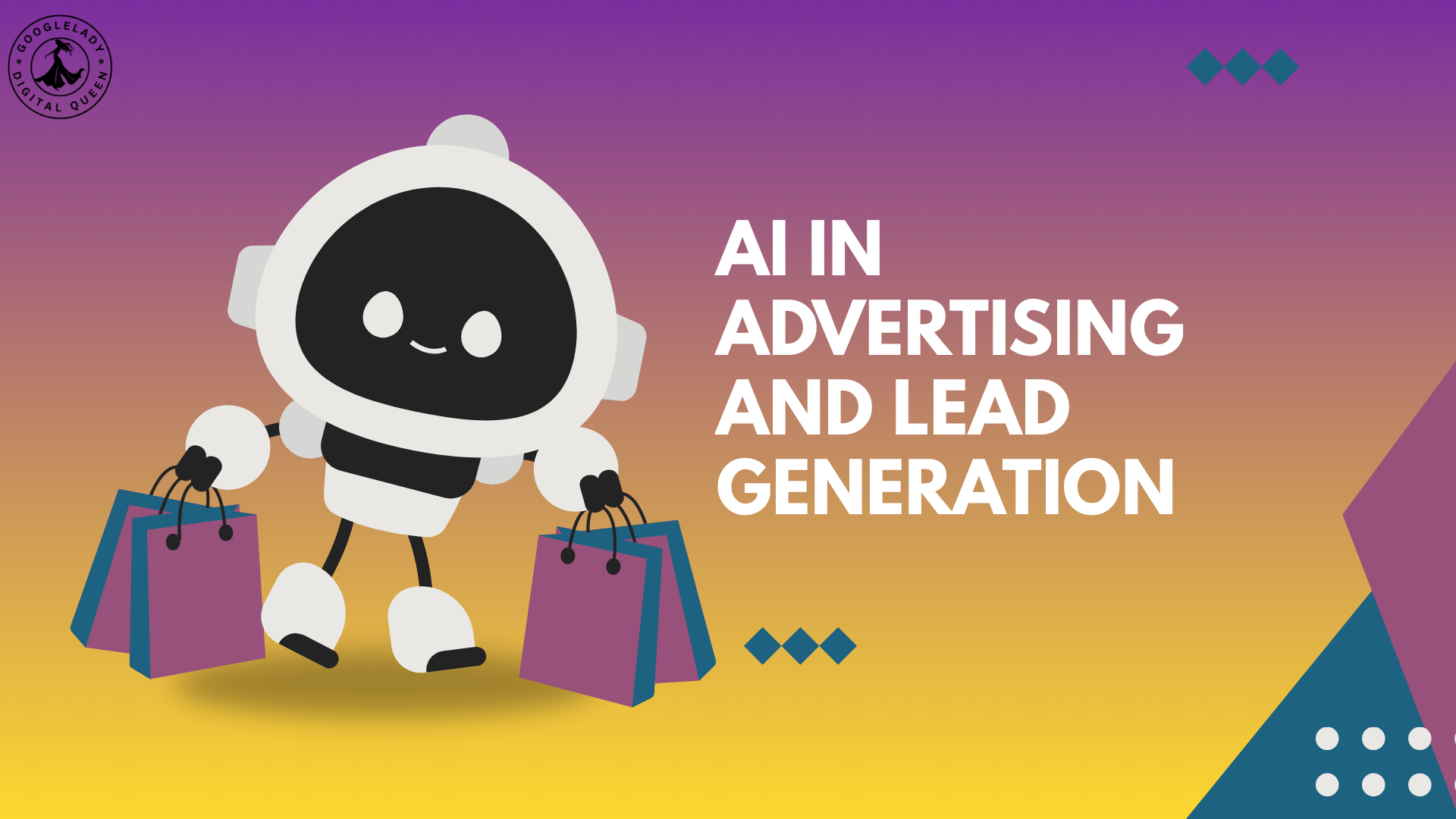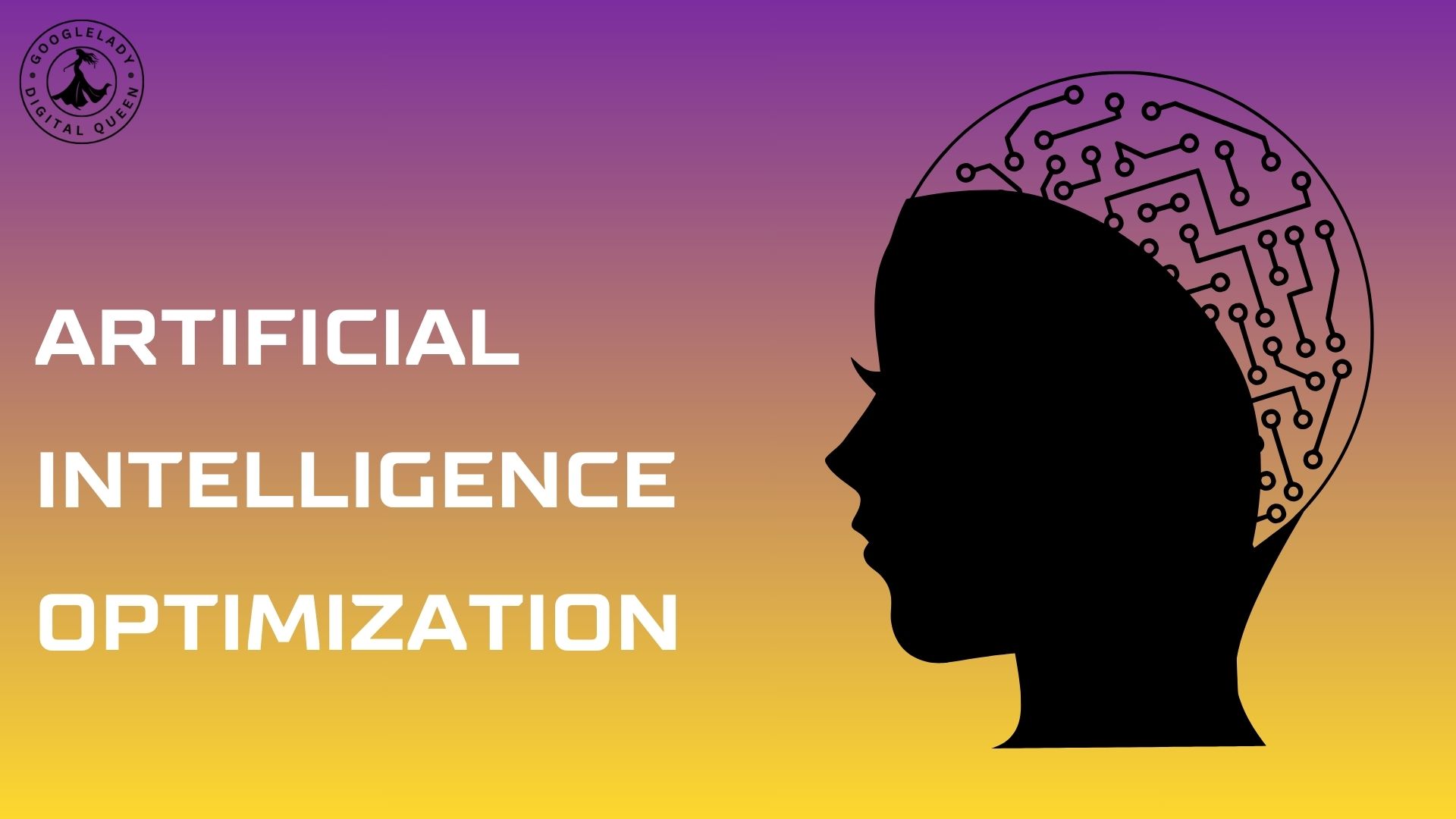The digital world is changing more quickly than any of us could have predicted because of artificial intelligence (AI).
AI is becoming the brains behind contemporary marketing, from intelligent chatbots to tailored advertisements. Today, understanding the role of AI in digital marketing isn’t optional; it’s essential for staying competitive.
This blog examines how AI and digital marketing work together, the benefits of AI, and recent statistics showing its impact.
What Is AI in Digital Marketing?
AI in digital marketing uses algorithms to automate decisions, analyze data, and streamline tasks. Rather than relying on manual research, marketers use AI tools to predict trends, understand audiences, and deliver personalized experiences.
AI is not limited to speeding things up. It facilitates more meaningful connections between brands and consumers. From creating content and automating email campaigns to using predictive analytics, AI in marketing boosts both creativity and efficiency.
For example, platforms like Google Ads, Meta, and HubSpot already use AI to optimize campaigns and improve conversion rates automatically. That’s how digital marketing and artificial intelligence are redefining how brands reach their audience.
Key Applications of AI for Marketing
1. Personalization and Customer Segmentation
Consumers expect personalization in every interaction. AI in marketing makes it possible to tailor messages based on behavior, interests, and purchase patterns.
With machine learning, businesses can segment customers automatically and deliver customized emails, website recommendations, and even product suggestions. Amazon, Netflix, and Spotify are leading examples of marketing and AI in action, offering experiences so relevant that users often forget they’re automated.
2. AI Tools for Digital Marketing Content Creation
Creating content that ranks and engages audiences is easier with AI. Many AI tools for digital marketers now help generate blog ideas, write SEO-optimized content, and even design visuals.
Recent reports show that 51% of marketing teams use AI to optimize content and 43% use it for automation tasks (SurveyMonkey, 2025). Whether you’re crafting ads, writing blogs, or managing social media, digital marketing with AI saves time and boosts creativity.
3. Predictive Analytics and Data Insights
Every marketing decision is based on data. But making sense of it manually takes time. AI for digital marketing simplifies this through predictive analytics, analyzing large datasets to forecast customer behavior, buying intent, and campaign outcomes.
Marketers can use these insights to fine-tune ad spend, plan content calendars, and optimize conversion funnels. Predictive modeling is now one of the strongest applications of artificial intelligence in digital marketing.
4. Chatbots and Virtual Assistants
If you’ve interacted with a website’s live chat or a brand’s customer support, chances are you were chatting with AI. AI digital marketing tools like chatbots and virtual assistants provide instant responses 24/7.
They handle FAQs, schedule appointments, and recommend products, all while collecting valuable user data. According to recent surveys, over 80% of businesses have integrated chatbots to improve engagement and lead generation.
5. Marketing Automation
Automation is one of the biggest advantages of using AI in marketing. Tasks like scheduling posts, sending follow-up emails, or adjusting ad bids can be handled by algorithms. This saves marketers hours of manual work each week.
Companies that adopt marketing AI report faster campaign execution and higher ROI because the system continuously learns and adapts from user data.
Benefits of Digital Marketing with AI
1. Improved ROI and Performance
AI allows marketers to make smarter decisions by analyzing performance data in real time. It can identify which ads are underperforming and adjust them automatically. This results in better resource allocation and higher ROI.
A 2025 report found that 69% of marketers have already integrated AI into their daily operations, and 70% believe AI can outperform humans in certain marketing tasks (Influencer Marketing Hub, 2025).
2. Better Customer Experience
When brands use artificial intelligence in marketing, customers notice. AI-driven personalization ensures every touchpoint feels relevant—from social media ads to email recommendations. This makes customers more likely to engage, convert, and stay loyal.
3. Time Efficiency and Productivity
By automating repetitive processes, AI gives marketers more time to focus on strategy and creativity. In fact, 86% of marketers say AI saves them over one hour per day on content creation and optimization (Typeface.ai, 2025).
4. Enhanced Decision-Making
AI doesn’t just automate, it advises. By analyzing real-time metrics, digital marketing and AI work together to show what’s working and what’s not. With accurate insights, marketers can adapt strategies faster than ever.
Challenges in Using Artificial Intelligence in Marketing
Despite its benefits, using AI in digital marketing comes with challenges:
- Data quality and bias: AI is only as good as the data it learns from. Poor or biased data can lead to inaccurate predictions.
- Integration issues: Not all tools integrate seamlessly with existing systems, creating roadblocks in workflow.
- Skill gaps: Many teams still lack the expertise to fully leverage AI.
- Ethical concerns: Over-automation can feel impersonal, and there are growing concerns about privacy and transparency.
However, these issues can be solved with proper training, strategy, and ethical implementation of artificial intelligence digital marketing tools.
Latest Statistics on AI in Digital Marketing (2025)
Here are some eye-opening stats showing how fast AI and digitalization are changing marketing:
- 96% of marketers have partially or fully integrated AI into their strategy (MarTech, 2025).
- 32% have fully implemented AI tools, while 43% are in the testing phase.
- 51% use AI for content optimization, and 50% use it for campaign automation (SurveyMonkey, 2025).
- The AI market value crossed $100 billion in 2023 and is expected to grow 20x by 2030 (Sixth City Marketing, 2025).
- Over 74% of new webpages include some AI-generated content (Typeface.ai, 2025).

These numbers make it clear that the role of digital marketing is evolving alongside AI. Brands that adopt early gain a significant competitive advantage.
Getting Started with Digital Marketing and Artificial Intelligence
If you’re ready to start using AI tools for digital marketing, follow these steps:
Step 1: Assess Your Marketing Readiness
Review your current marketing setup and identify areas where AI can help—content creation, analytics, automation, or personalization.
Step 2: Choose the Right AI Tool for Digital Marketing
Pick tools that match your goals. For example, Jasper or Writesonic for content creation, HubSpot for automation, and ChatGPT or Drift for customer engagement.
Step 3: Start Small and Measure Results
Test one process first, such as automating social media posts or using AI for SEO. Track metrics like traffic, conversions, and engagement to measure success.
Step 4: Keep Learning
AI evolves fast. Stay updated with the latest marketing and artificial intelligence trends, and continuously train your team to get the most out of the technology.
Conclusion
The role of AI in digital marketing goes far beyond automation; it’s reshaping how brands understand, reach, and connect with audiences. From creating smarter campaigns to improving customer experience, artificial intelligence and digital marketing now work hand in hand to drive success.
Businesses that embrace digital marketing and AI early will not only save time and money but also stay ahead of competitors. The future is clear: AI isn’t replacing marketers, it’s empowering them to achieve more with less effort.
Frequently Asked Questions
1. What is the main role of AI in digital marketing?
AI helps marketers automate processes, analyze large amounts of data, and personalize customer experiences to improve overall marketing performance.
2. How can AI improve customer engagement?
By understanding user behavior and preferences, AI can deliver the right message at the right time—enhancing engagement and conversion rates.
3. What are the best AI tools for digital marketers?
Popular tools include Jasper, Writesonic, HubSpot, ChatGPT, Grammarly, and Surfer SEO—each focusing on different areas like writing, analysis, or automation.
4. Are there risks to using AI in marketing?
Yes. Poor data quality, lack of human oversight, or over-automation can hurt brand authenticity. AI should support, not replace, human creativity.
5. What’s the future of marketing and AI?
AI will continue to evolve, making marketing more predictive, personalized, and data-driven. By 2030, it’s expected that nearly every marketing task will involve some AI element.


0 Comments